I dunno — maybe I wanted to like this one a little too much.
Seriously, though, who wasn’t rooting for Black, the Kickstarter-funded indie comics project from writer/co-creator Kwanza Osajyefo, “designer”(we’ll get back to this in a minute)/co-creator Tim Smith 3 and artist Jamal Igle, which has recently found a publishing home thanks to the always-interesting Black Mask Studios?
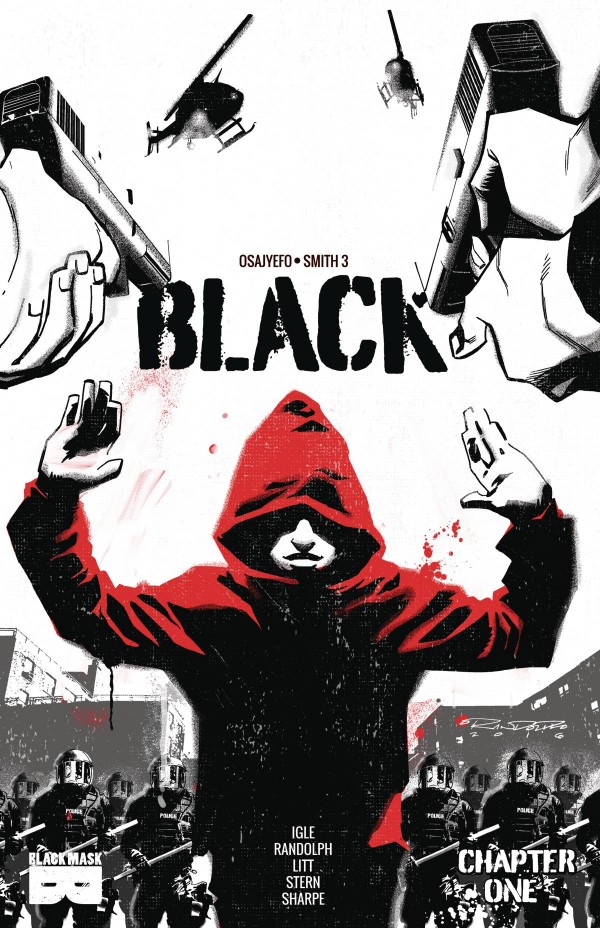
The book is certainly topical — police brutality, BLM, poverty, and Trump-esque “fear of the other” are all front and center in this series, and that provocative-as-all-hell cover by Khary Randolph grabs you by the throat before you’ve even flipped open to page one. Yeah, I got a free digital “review” copy of this comic, but I was so determined to support it that I plunked down $3.99 for it at my LCS, regardless. Then I read the thing — cover to cover. And when I say cover to cover, I mean that I read the copyright indicia, as well. And that’s when I started to feel like I’d “been had” a bit.
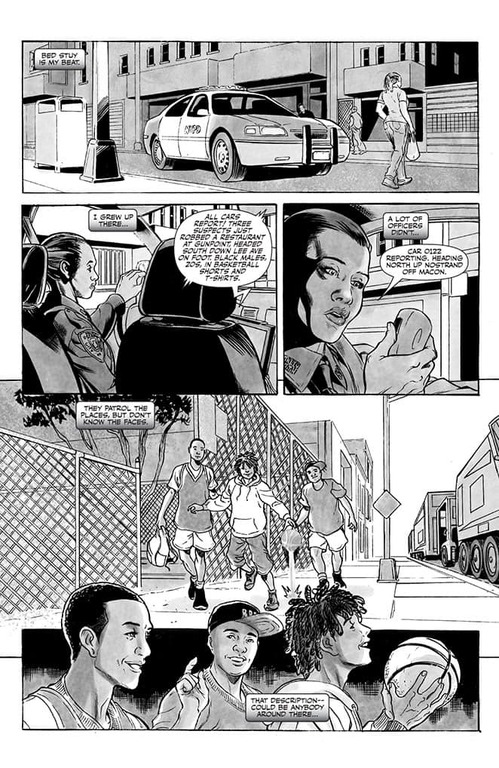
Don’t get me wrong, the premise here is as cool as they come: how would the world react if super-powered humans were real — and exclusively black? I think we all know: white people would freak the fuck out, and things would get pretty ugly pretty fast. For now, though, it looks like those with powers are keeping a low profile : our protagonist, Kareem, seems like a nice enough Bed-Stuy kid who gets caught up in a confrontation not of his own making with the bullies in blue that escalates pretty quickly — perhaps even unrealistically quickly, even by the sorry, trigger-happy standards set by much of contemporary American law enforcement. Still, it turns out that he’s every bit as bulletproof as Luke Cage, and when he runs from the scene, he’s saved by the timely intervention of a mysterious interloper who ushers him into the world of secret labs and “meet the others who are like you.” Apart from a couple of cringe-worthy moments that have all the subtlety of some of R. Crumb’s racially-charged strips (waking from — or maybe it’s into, it’s kinda hard to tell — a dream featuring a grandmotherly figure singing “I’ll Fly Away,” telling a female scientist “damn — you so fine” right off the bat), Kareem is a fairly effective pair of eyes and ears for readers, but it’s more than fair to say that no one else featured in this issue really makes much of an impression one way or the other. Osajyefo’s script is an efficient, economic, style-free affair that gets you from points A to B to C with little fuss or muss, but doesn’t offer anything particularly compelling enough to make you say to yourself “dang, I’ve just gotta see where this goes.”
Much better is Igle’s black-and-white art which is, again, fairly economical and “no-frills,” but has a pleasingly “old-school” look and feel to it that is more concerned with sticking with, and successfully utilizing, sequential storytelling basics than it is offering flashy, “look at me” pyrotechnics. It’s no stretch at all, in fact, to say that Igle is the nominal “star” of this comic.
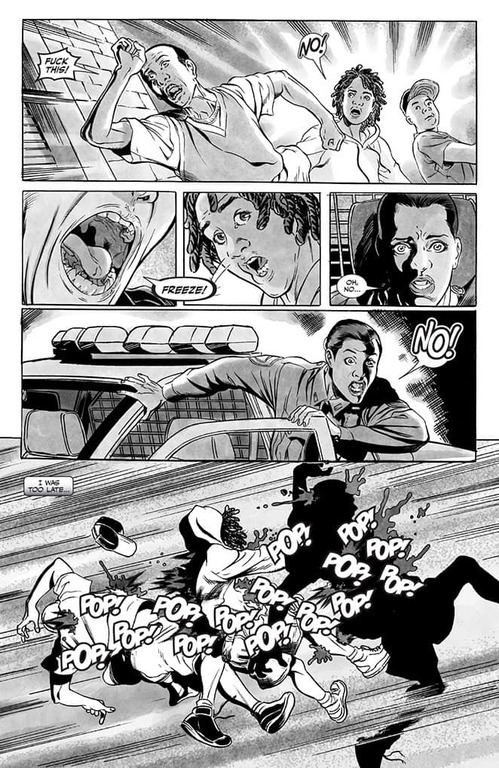
So why is he being treated like a pencil (and brush) for hire? I told you I’d read the copyright indicia on this comic, and this series is owned lock, stock, and barrel by its writer and “designer,” and while I don’t know what the work of “designing” this world entails, especially given that all the characters wear street clothes, look like ordinary folks, and live in the real world, I feel pretty comfortable saying that Igle did almost all of the heavy lifting here based, at most, on perhaps a handful of sketches Smith may have come up. Black is hardly unique in terms of being a “creator-owned” project where the artist gets jobbed, of course — the entire Aftershock Comics line is writer-owned, and so is a depressingly large percentage of Image‘s output — but it is, significantly, the only book with a purportedly “revolutionary” political perspective to do so. My advice? Put your money where your mouth is and cut your artist in on the action, given that he’s the one who’s probably put more sheer labor hours into this thing than anyone. I prefer to see creators who want to “stick it to The Man” over those who want to “become The Man,” and that’s exactly what will happen if Black gets picked up for movies or television and Osajyefo and Smith laugh all the way to the bank while Igle is left to live off his no-doubt-meager page rate. At the risk of using perhaps the single-most inappropriate line I could possibly think of, it appears to me that the politics of this series only run skin-deep.
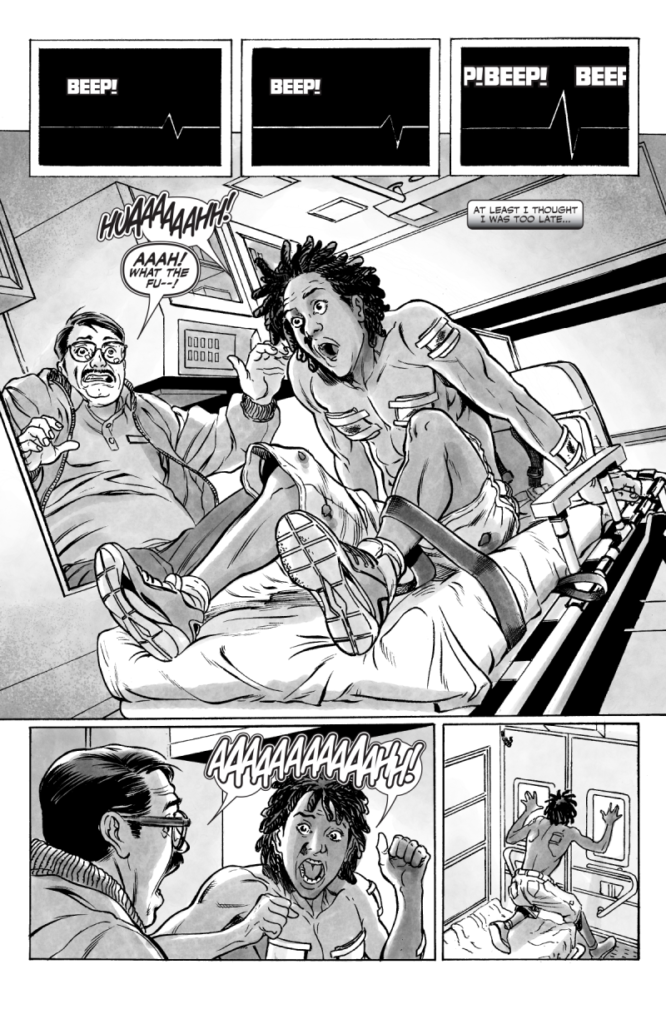
There’s a larger issue in play here, though, as well: racism and its various manifestations are tools used by the elite capitalist economic class to keep the rest of us “in our place.” The police, the government, and the military, among other institutions, are paid hirelings of our economic “superiors” that act as foot-soldiers in this ongoing class war. A “revolution of consciousness” or somesuch just ain’t gonna cut it if we want to get rid of racism and other forms of bigotry once and for all — it’s going to take an economic revolution, over and above anything else, and two of the three creators involved with Black either don’t understand that, or simply don’t care. Yes, of course I’d rather see any creator own a book instead of a publisher, but ideally I’d like to see all creators cut in for a stake. And Igle definitely deserves it here.
My concerns about its ownership structure aside, though, Black #1 is still, at best, a very mediocre comic. It’s got a legitimately killer premise and highly competent art, but not much else. I’m game to give it another issue or two, I suppose, but can’t really recommend it as something worth your own $3.99, dear reader. And I sincerely hope that Jamal Igle knows a good lawyer who can help him get what’s coming to him if Kwanza Osajyefo and Tim Smith 3 go on to achieve Robert Kirkman levels of success. Of course, Kirkman himself tried to screw his Walking Dead co-creators out of their share when the show hit it big, and they did have copyright ownership. But that’s another story for another time — and one that I sincerely hope isn’t repeated here.
— @TRASHFILMGURU.
CHECK OUT THE @TRASHFILMGURU ARCHIVE, SUCKA!
CHECK OUT @TRASHFILMGURU’S TOP TEN TITLES OF 2015 OVER HERE!
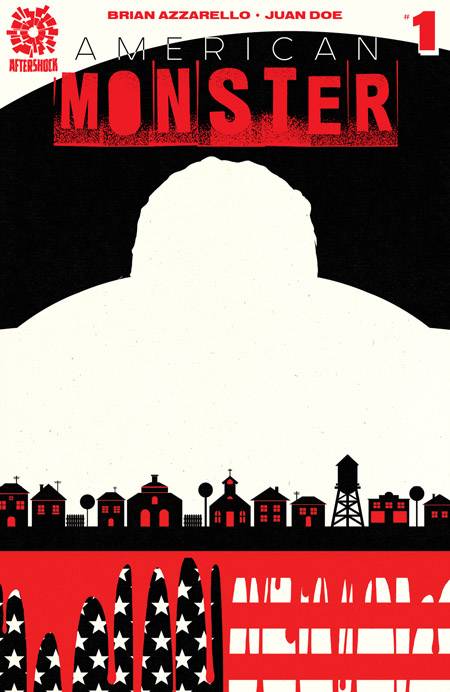
Tags: Black Mask Studios, Comic Books, Comics, Jamal Igle, Khary Randolph, Kwanza Osajyefo, Tim Smith 3

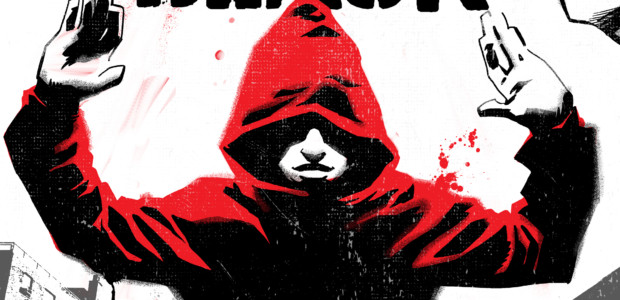
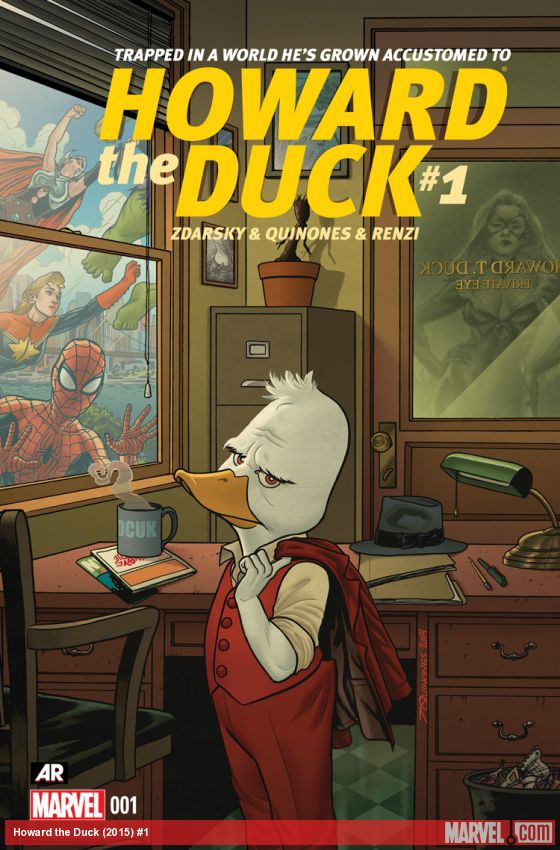
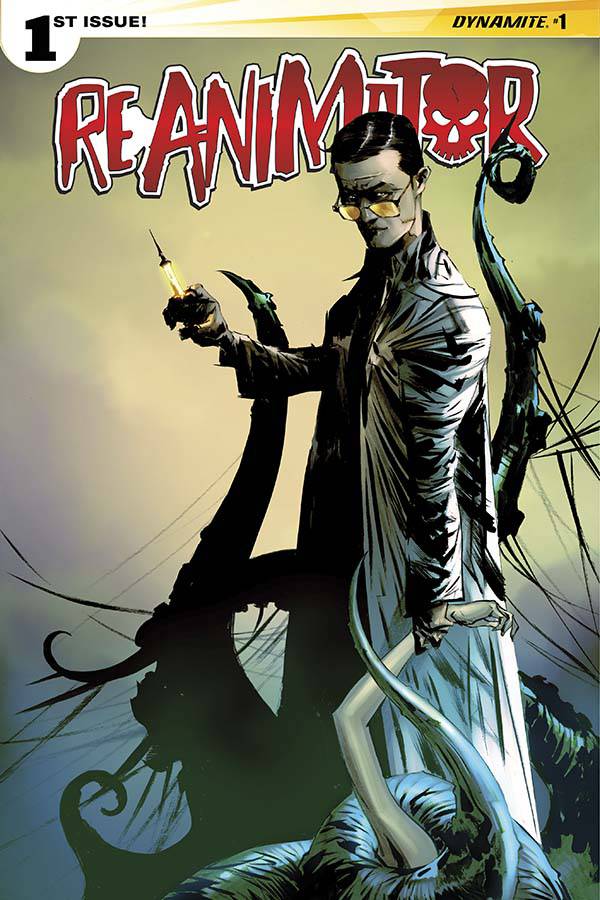
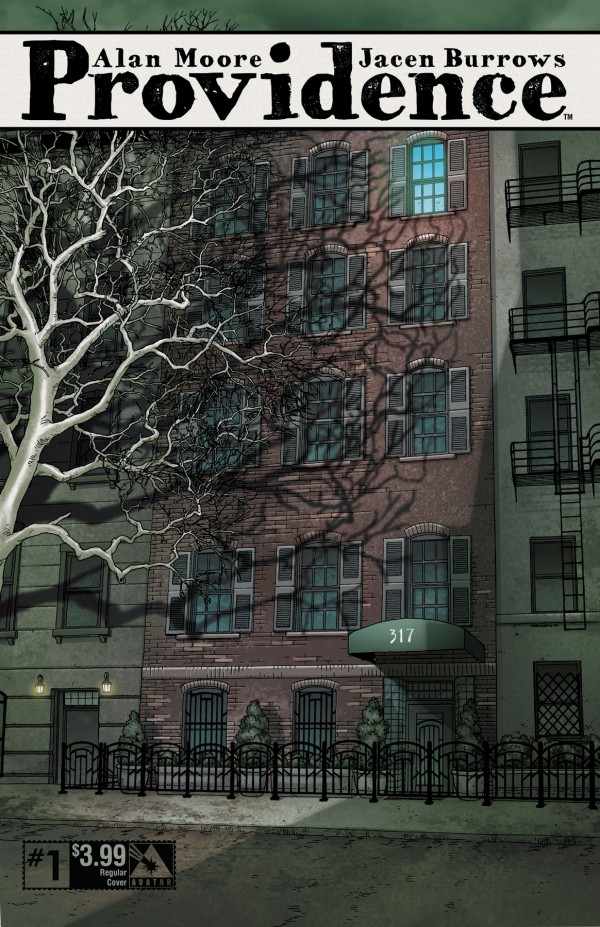
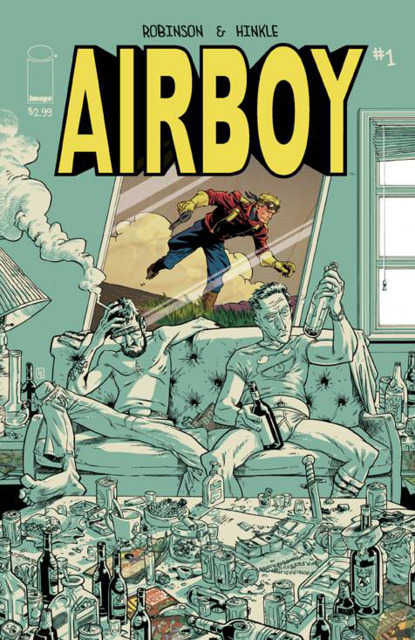

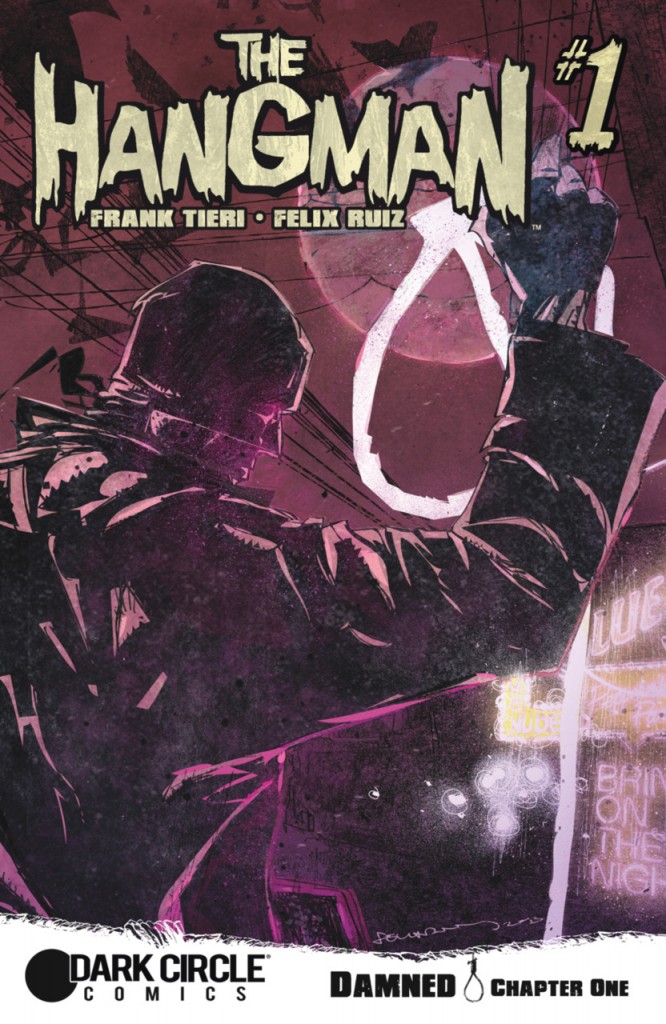
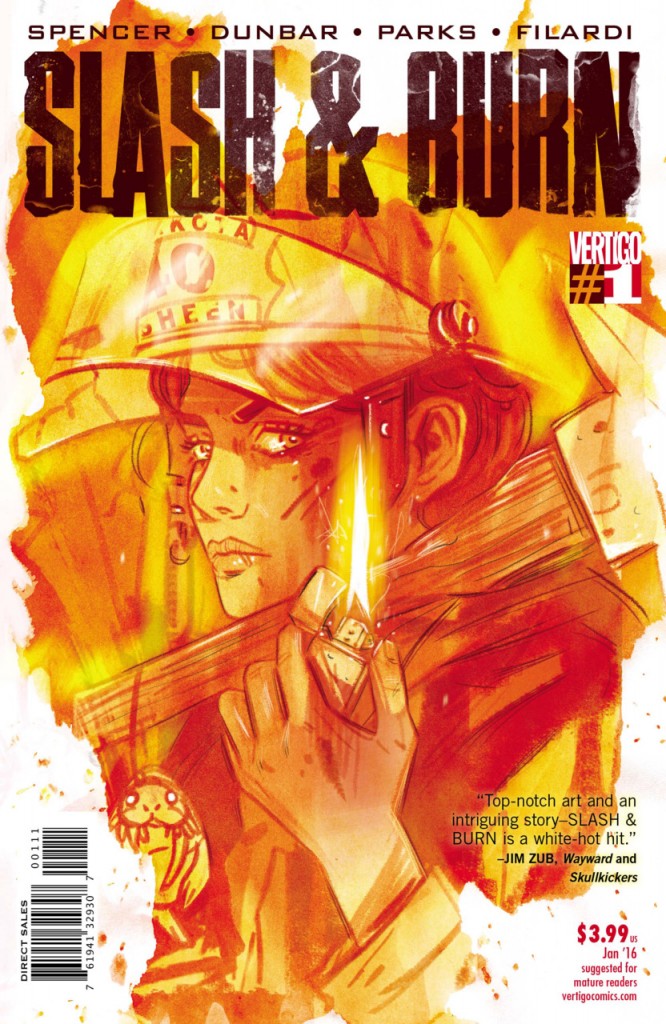
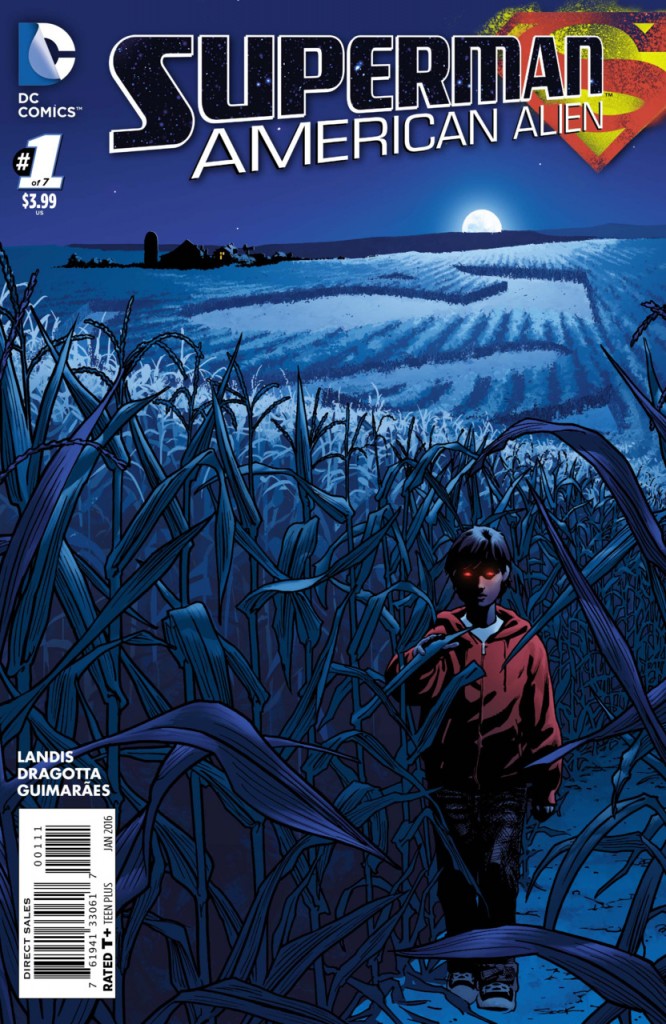
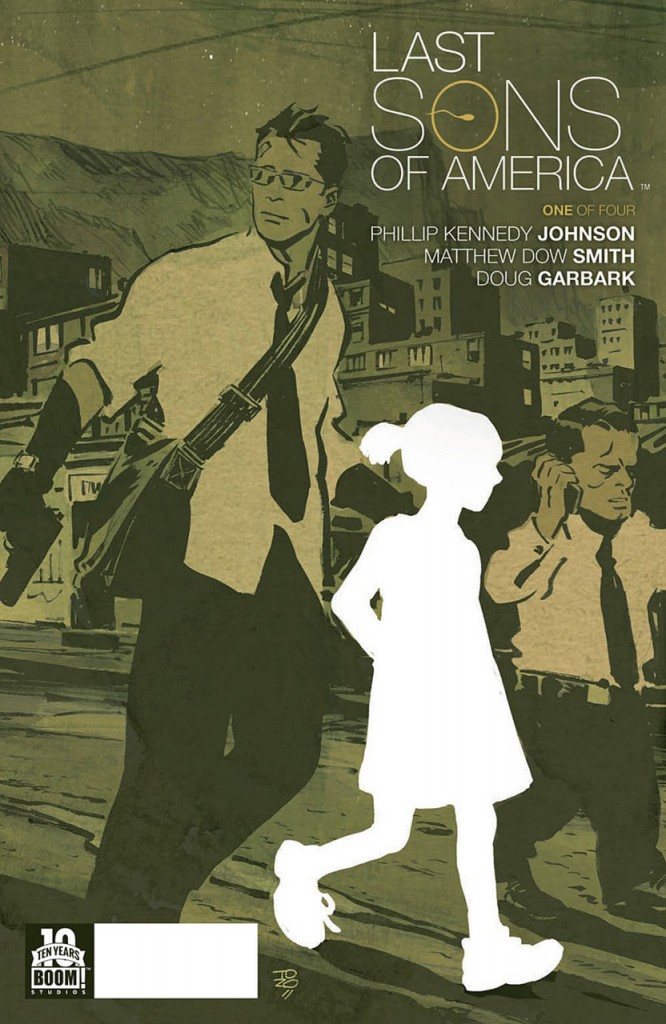
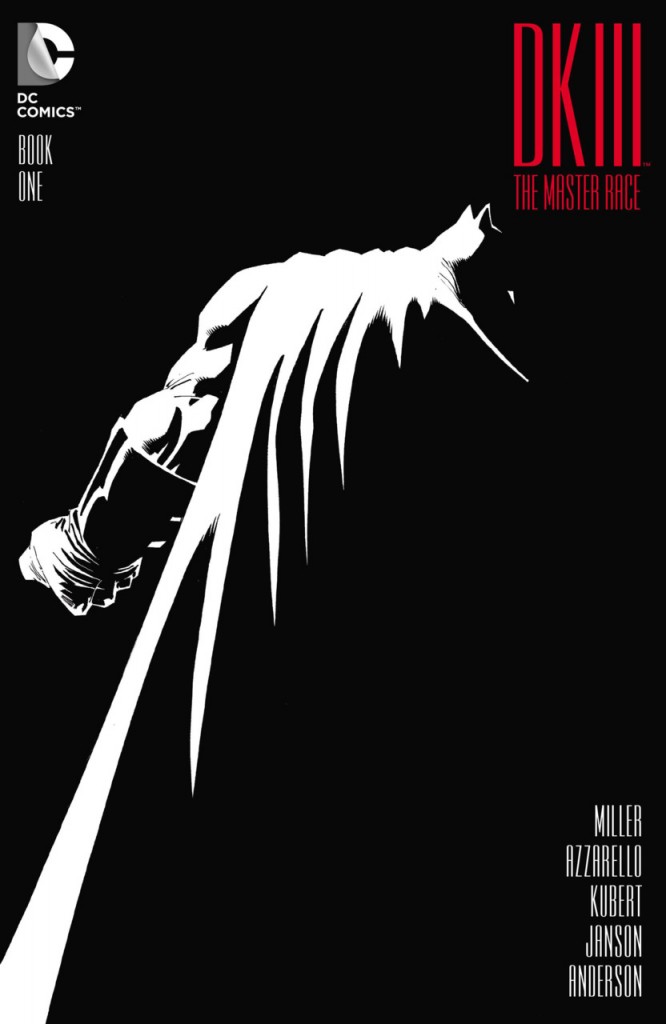
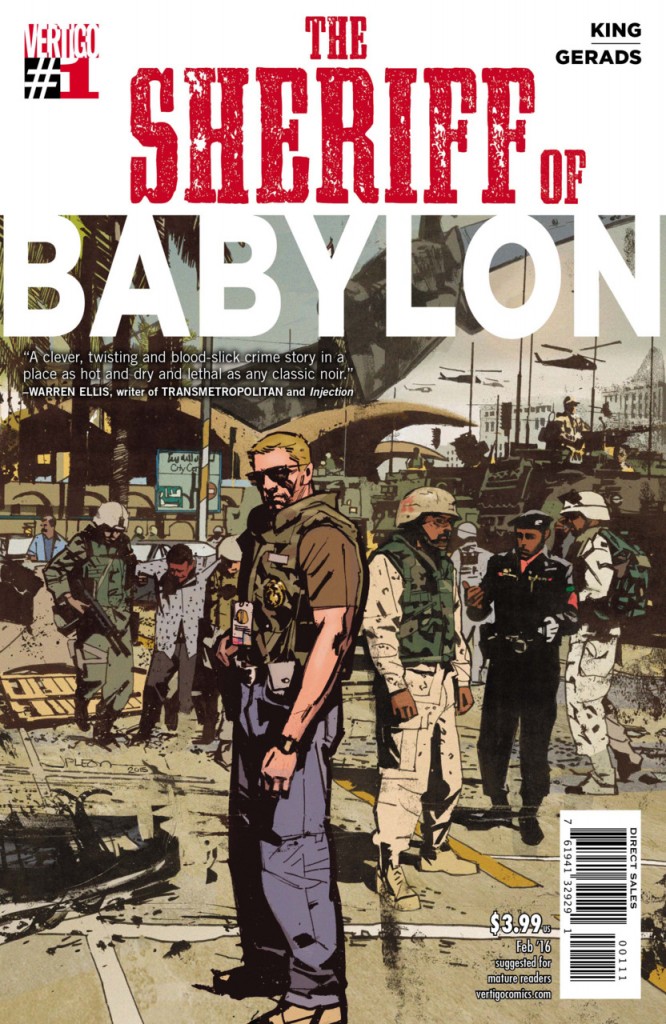
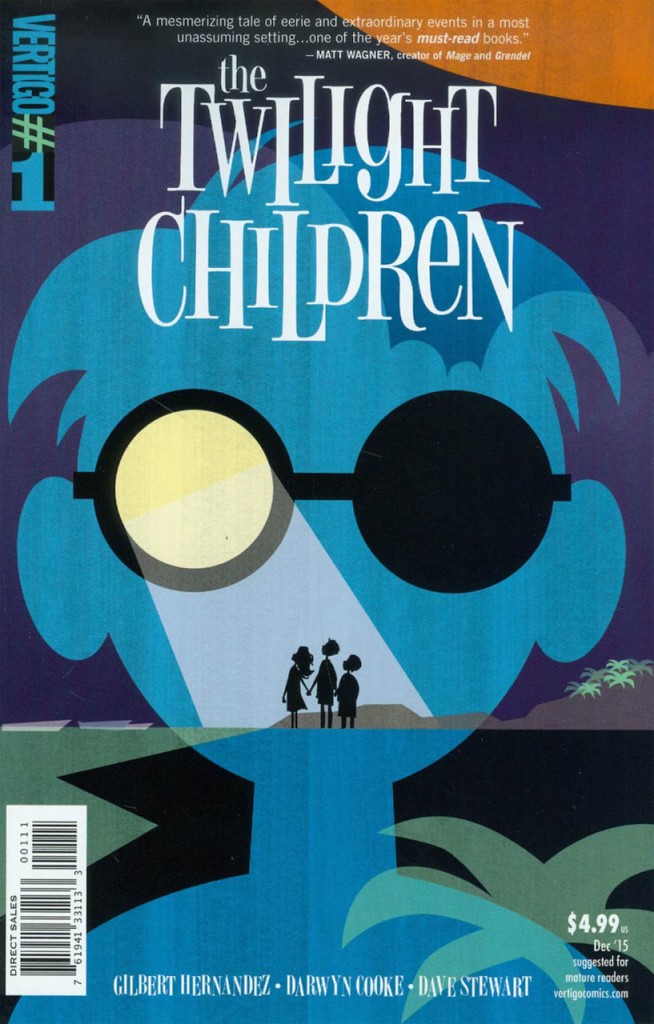
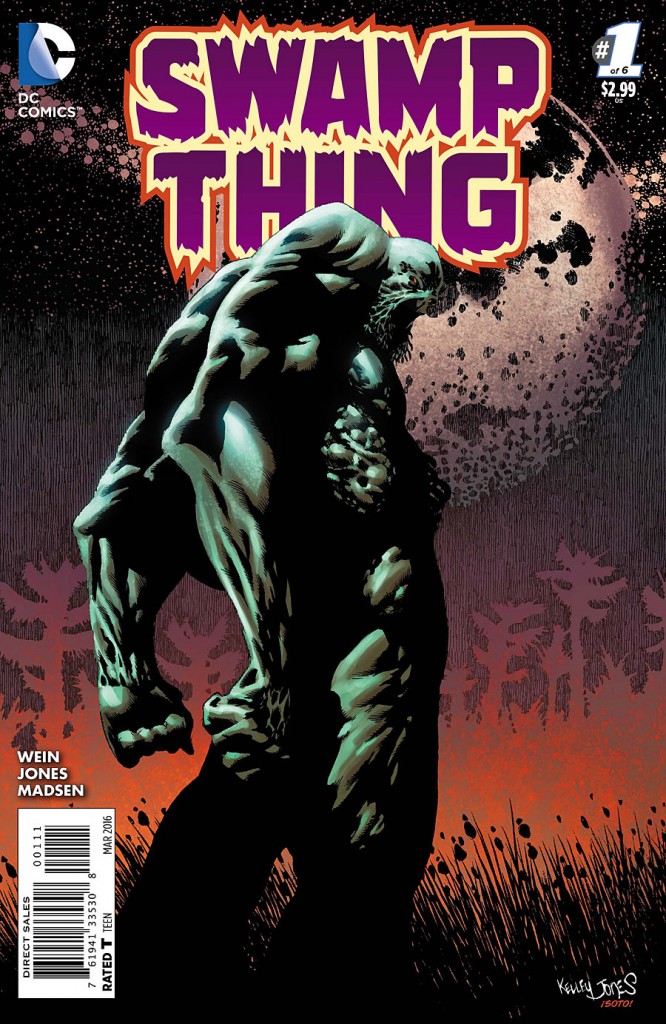
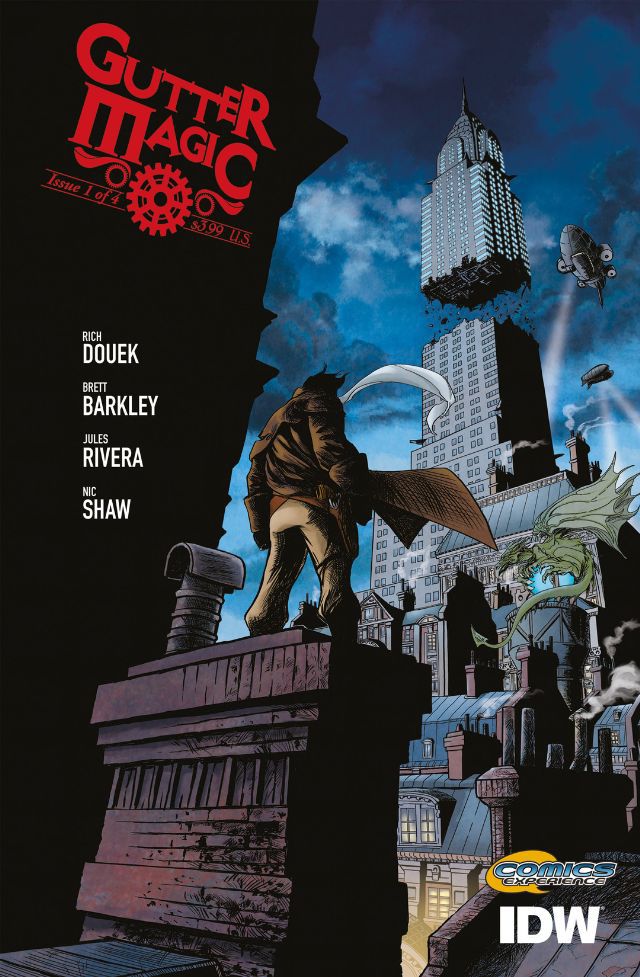
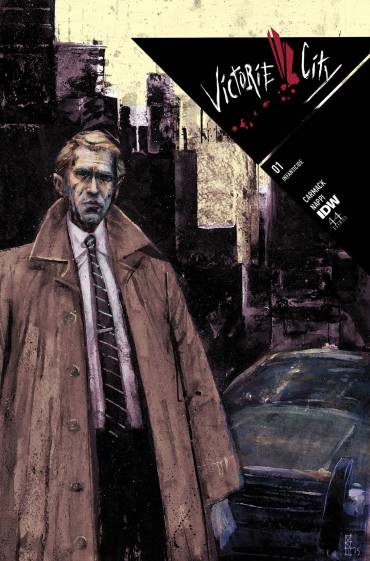
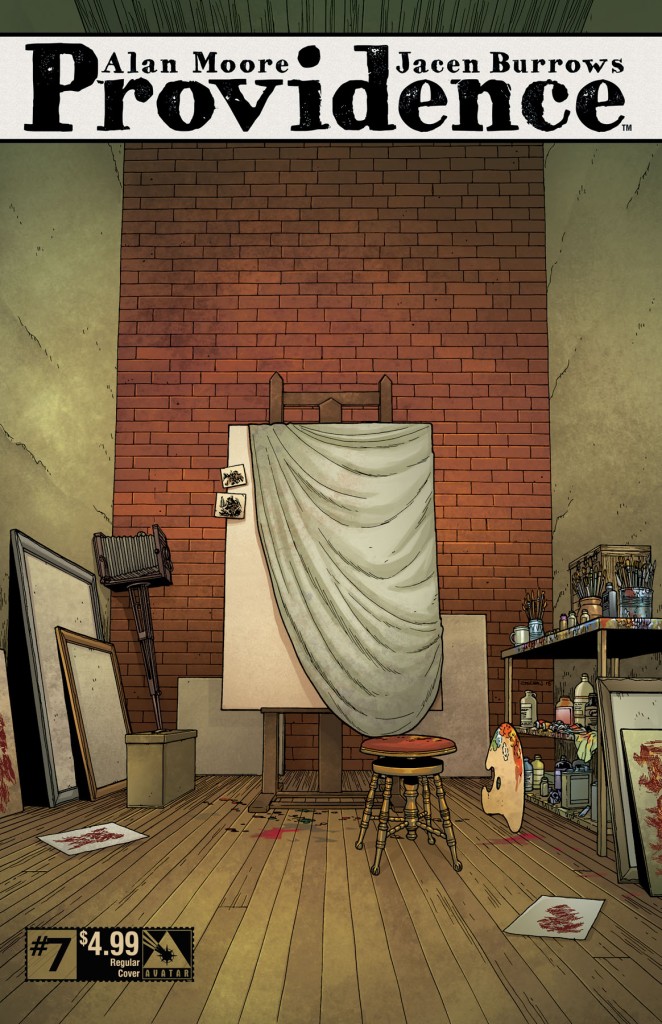
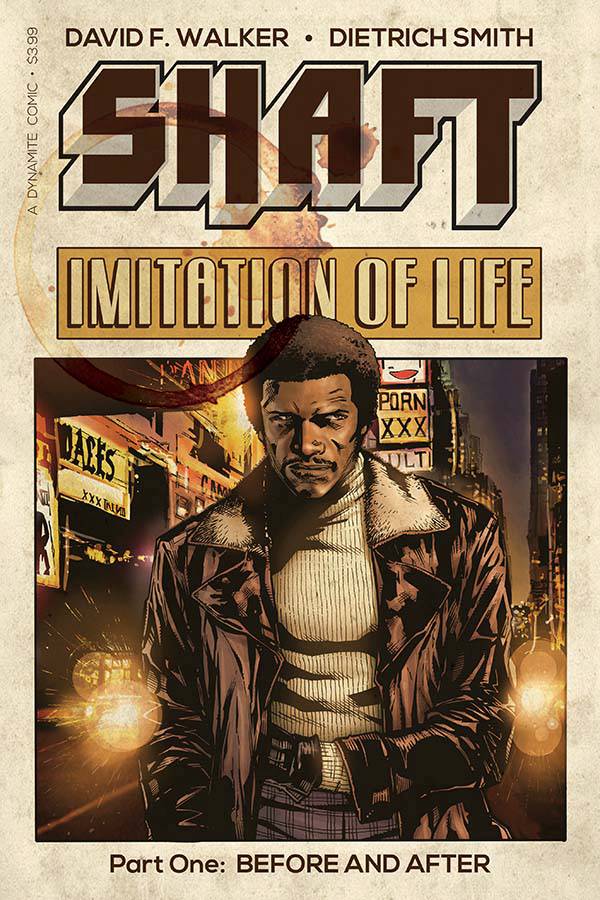
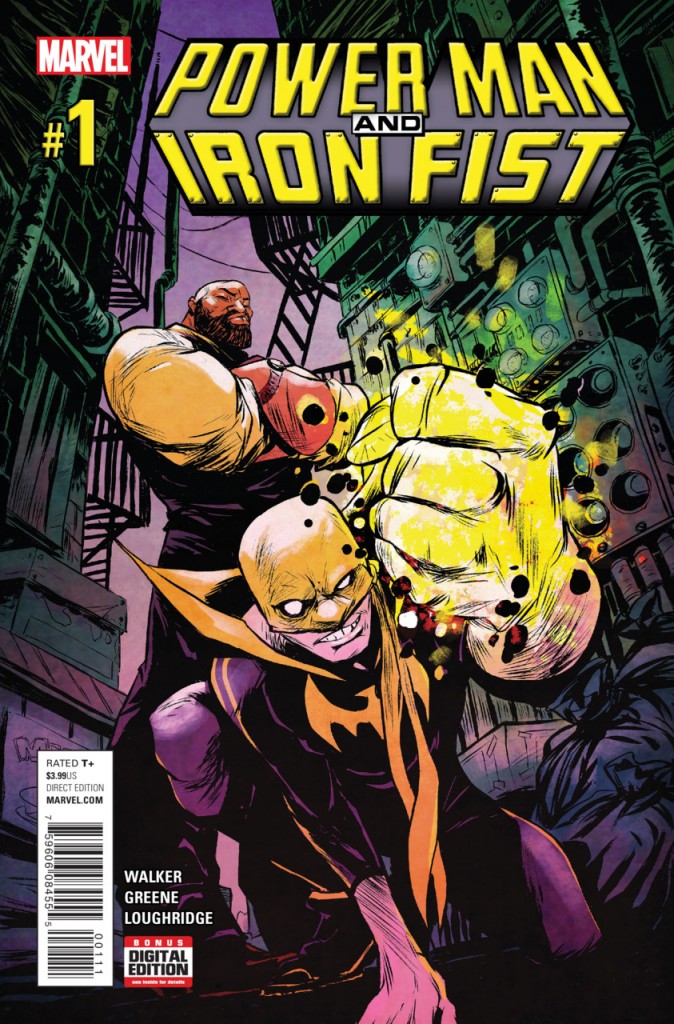
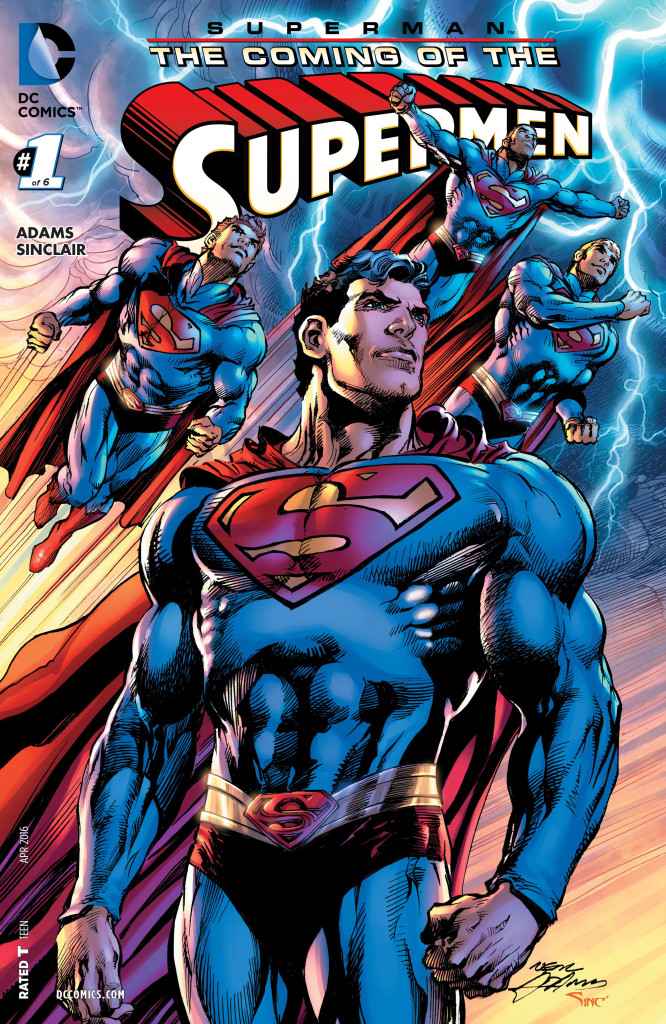
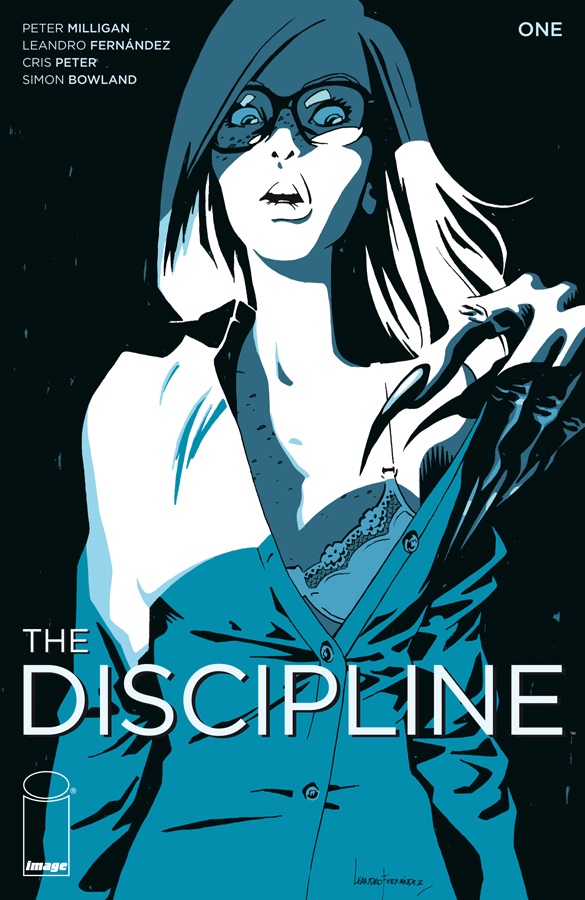

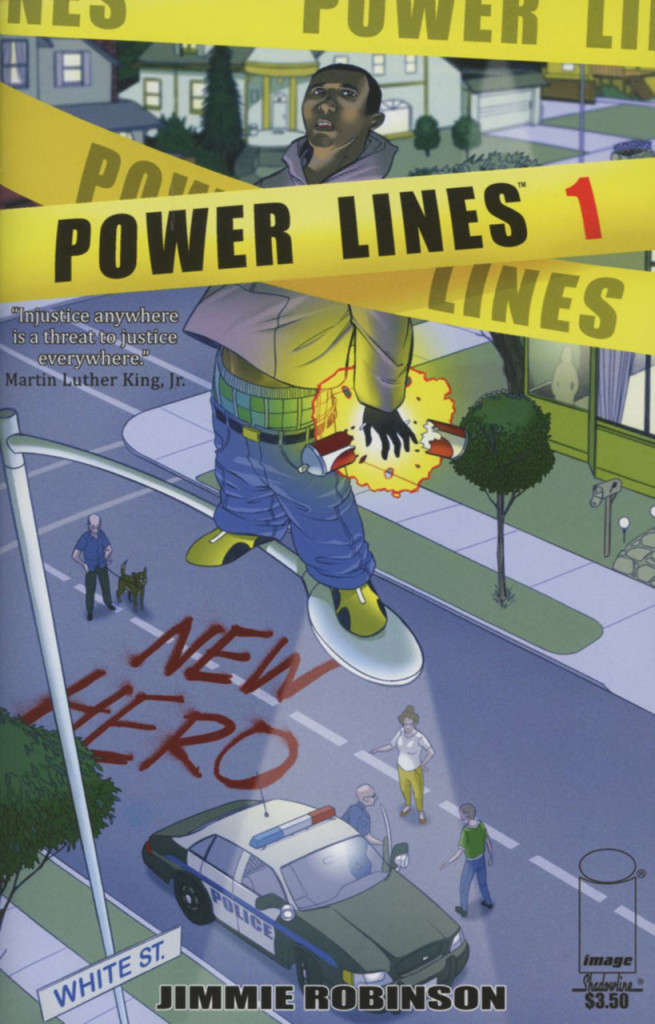
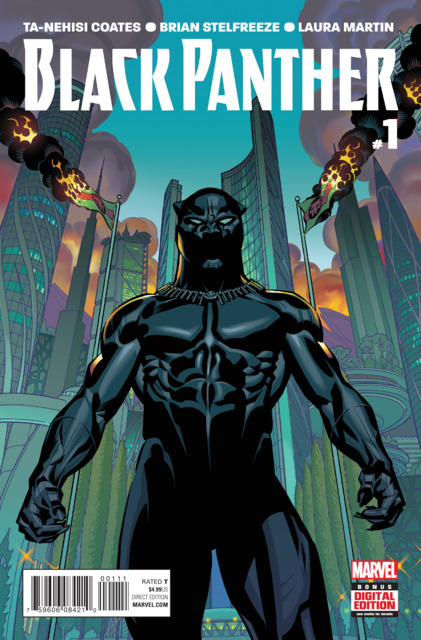
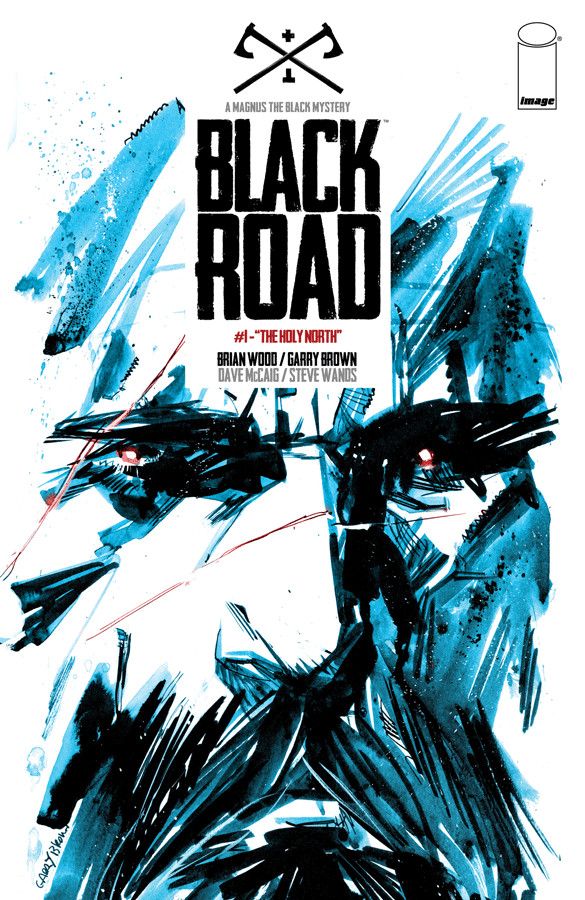
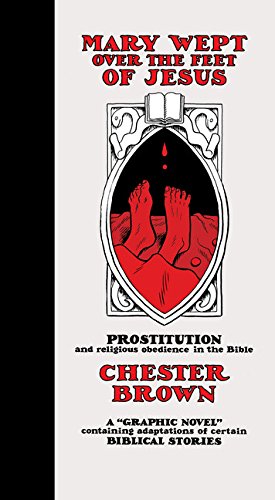
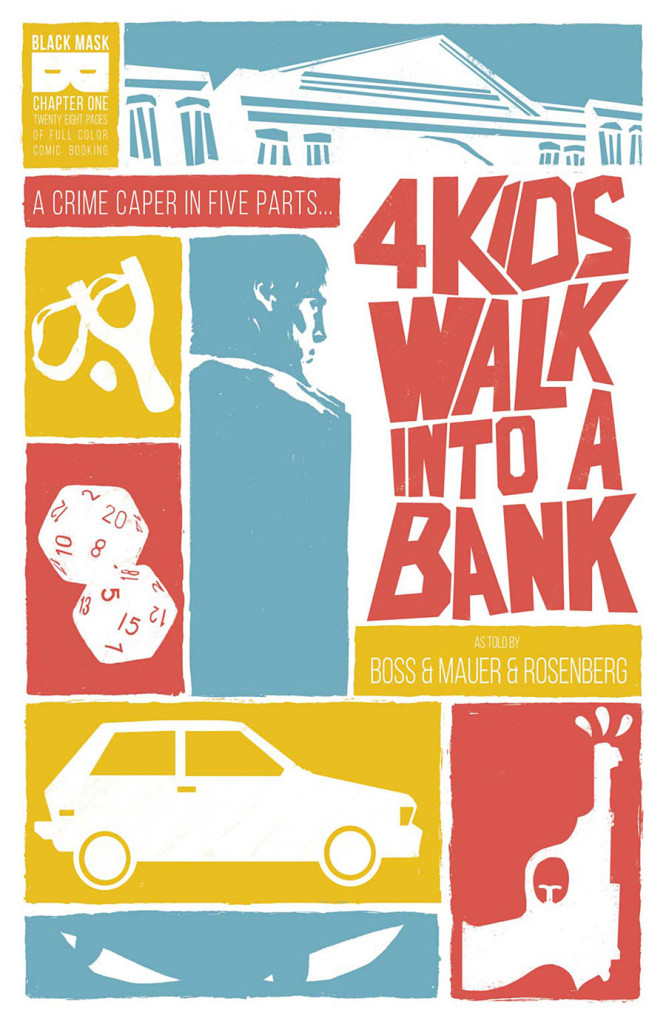
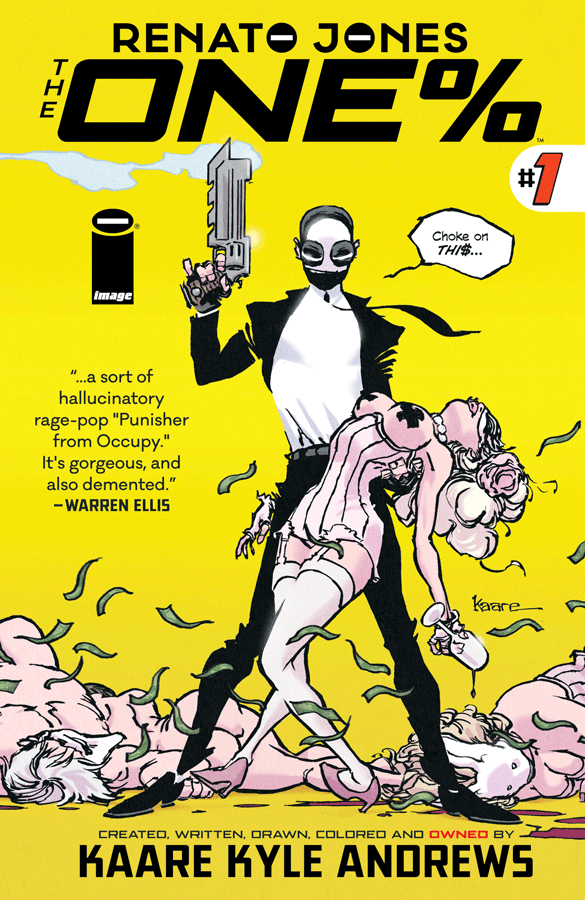
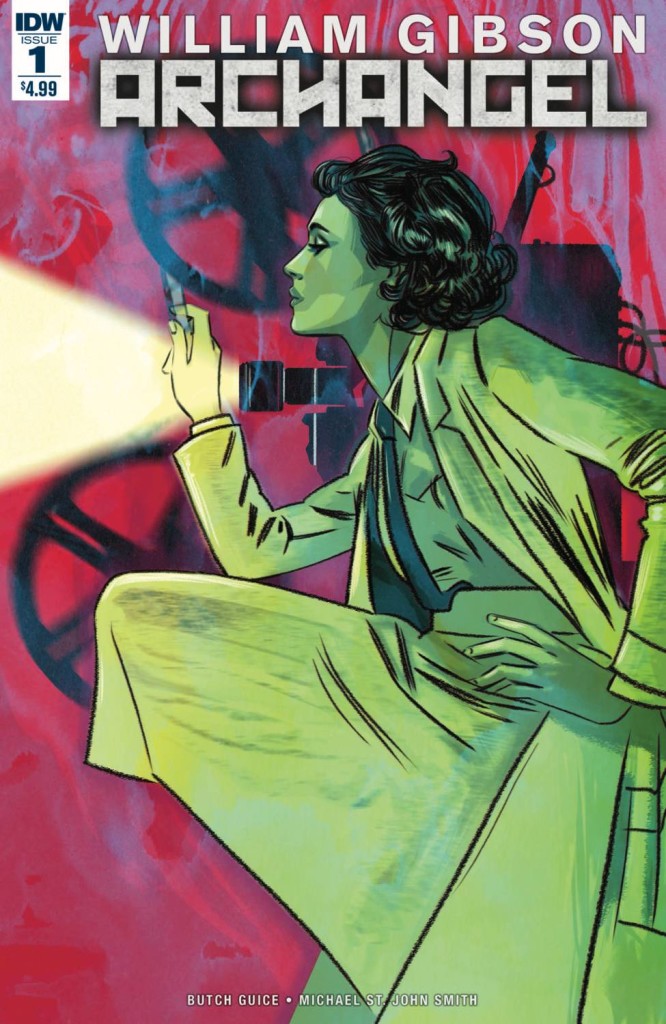
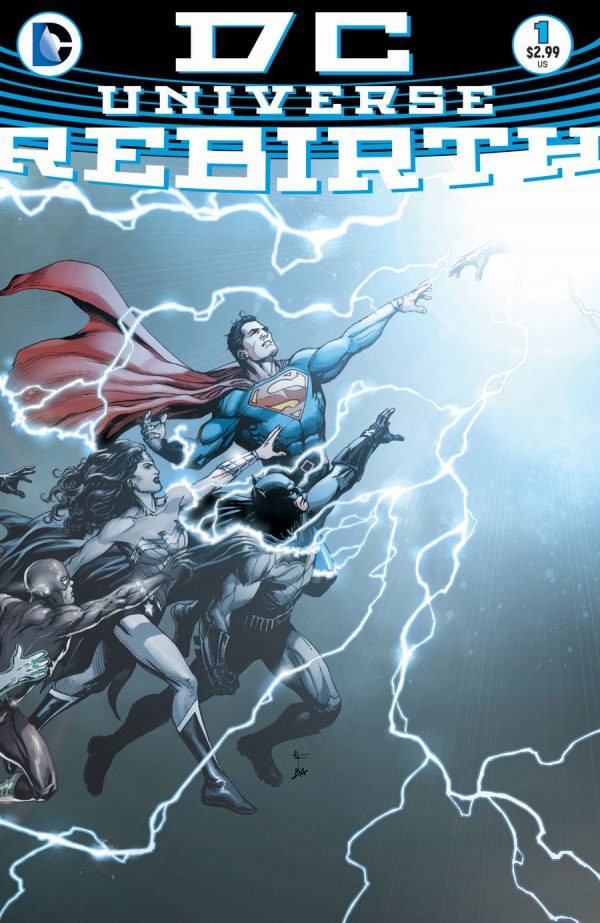
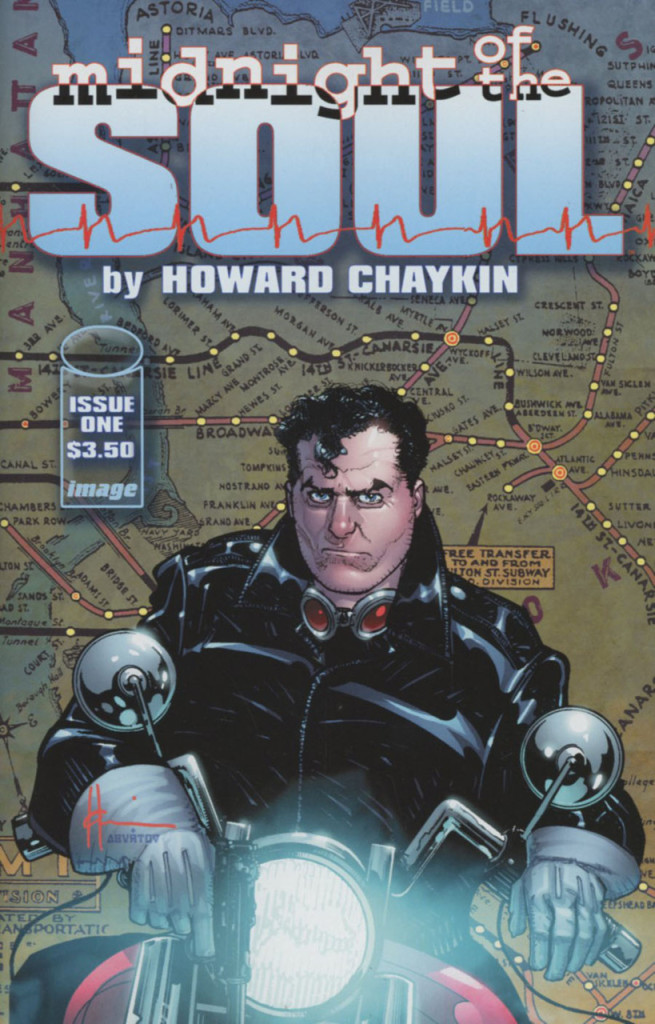
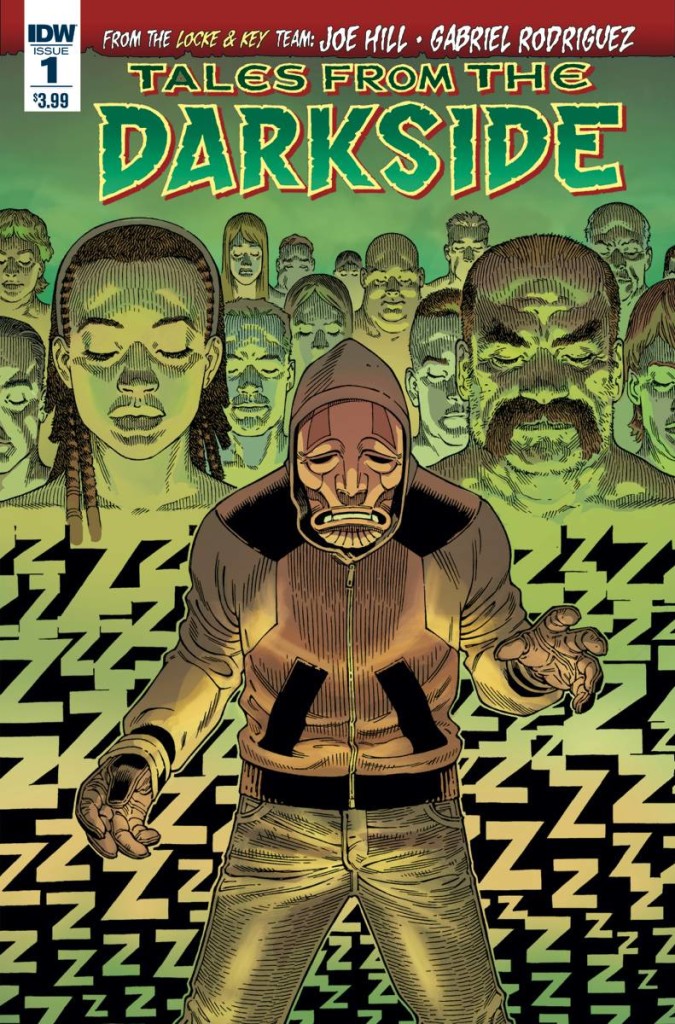
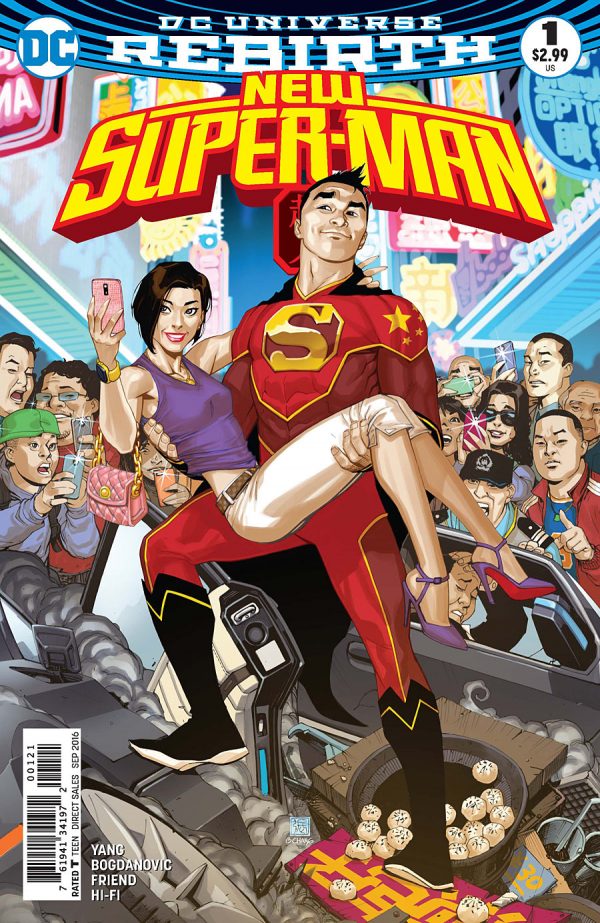
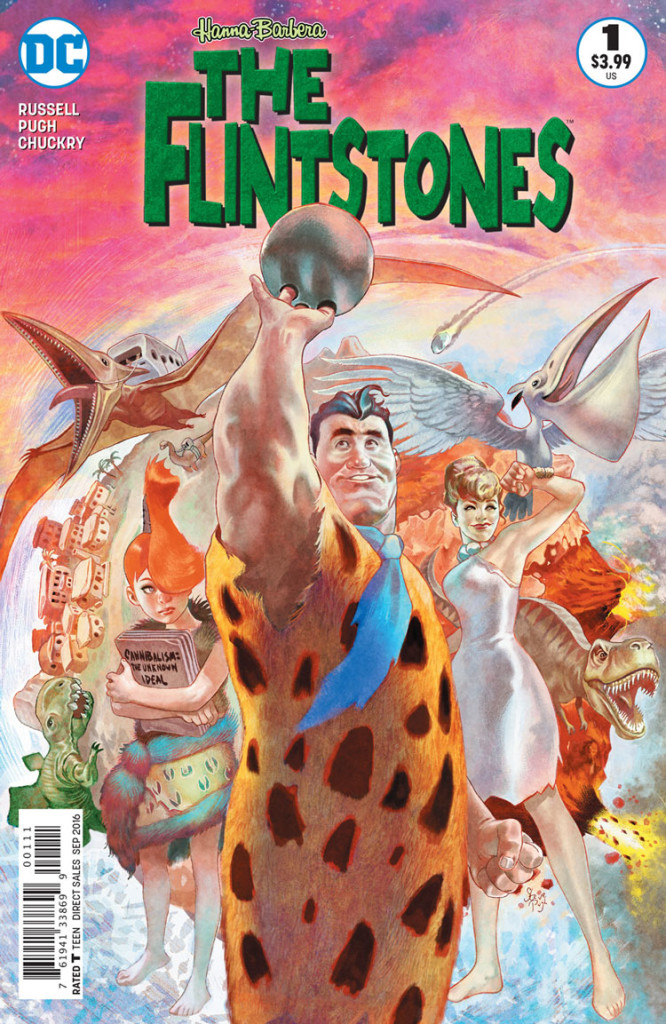
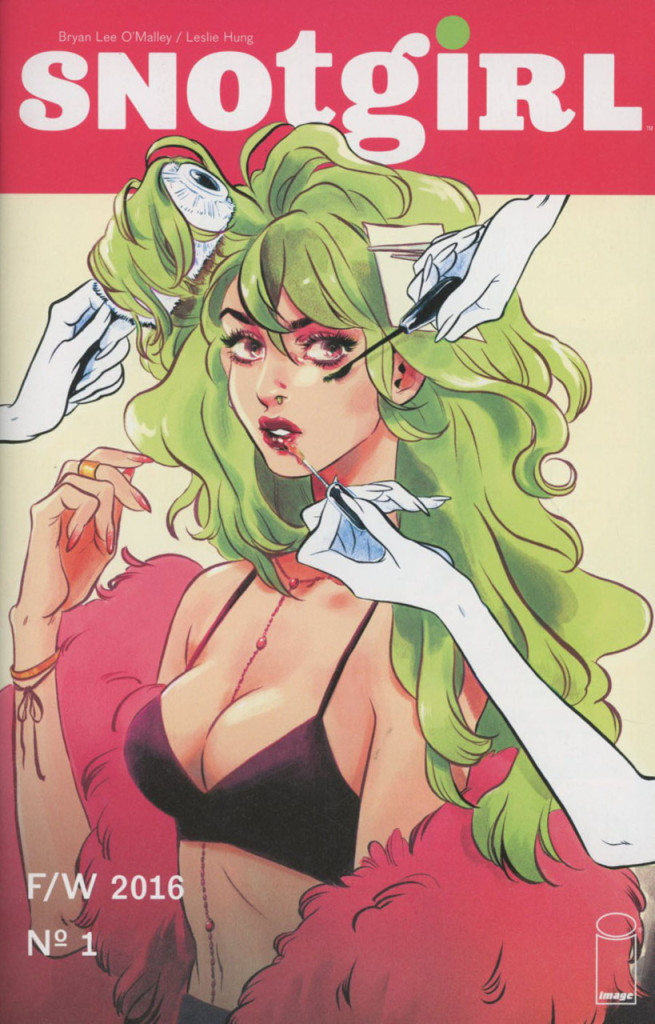
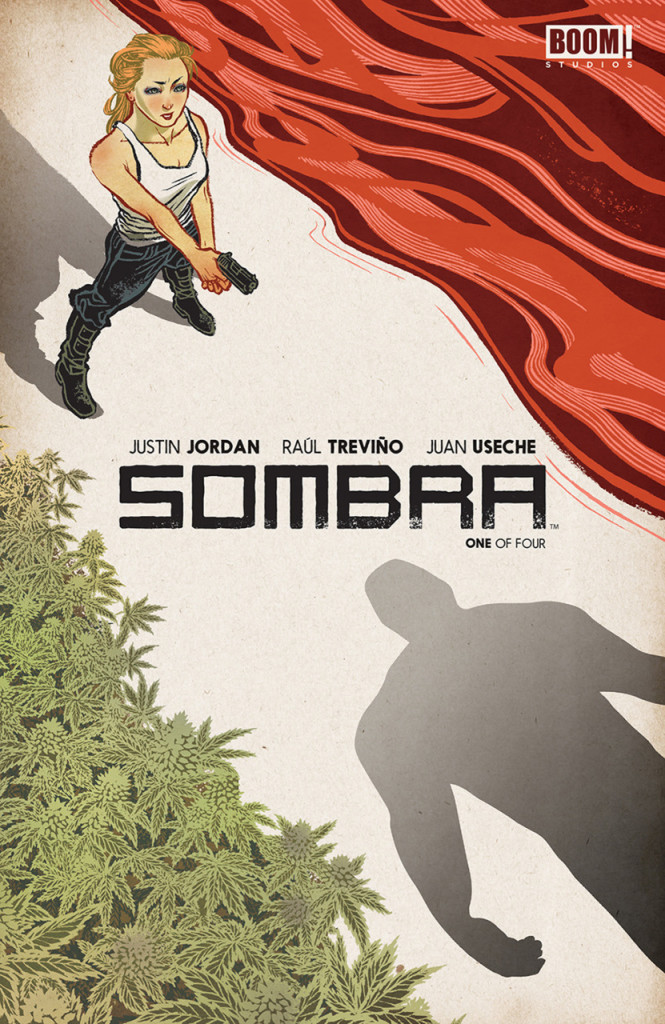
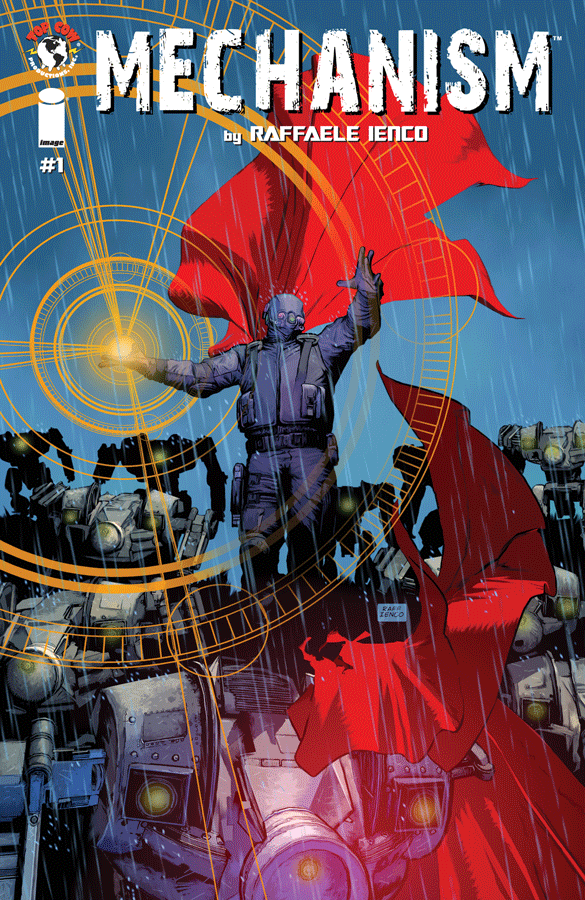
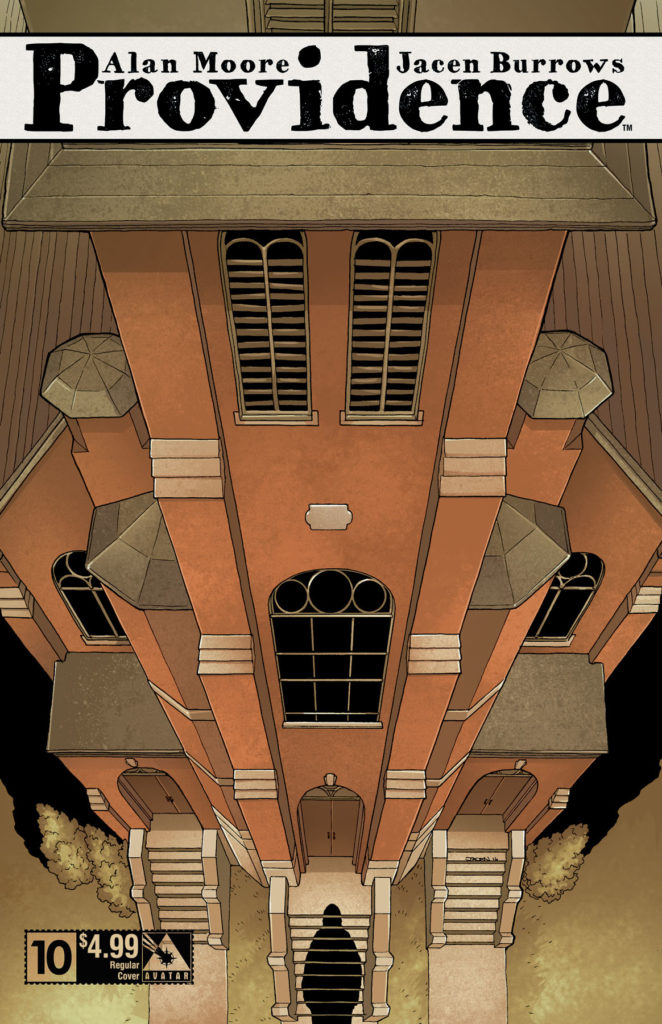
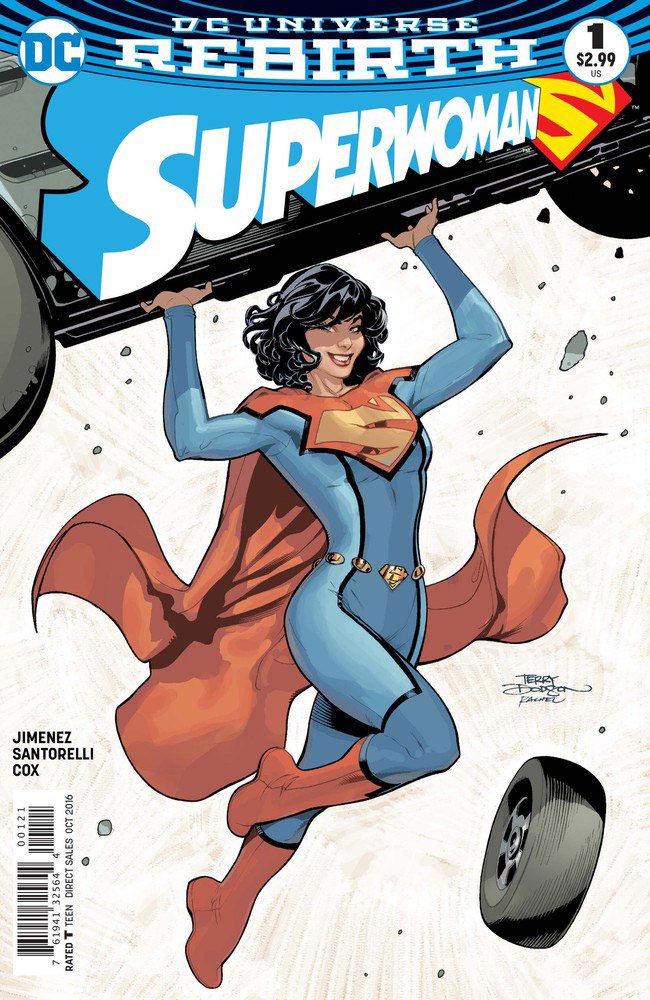
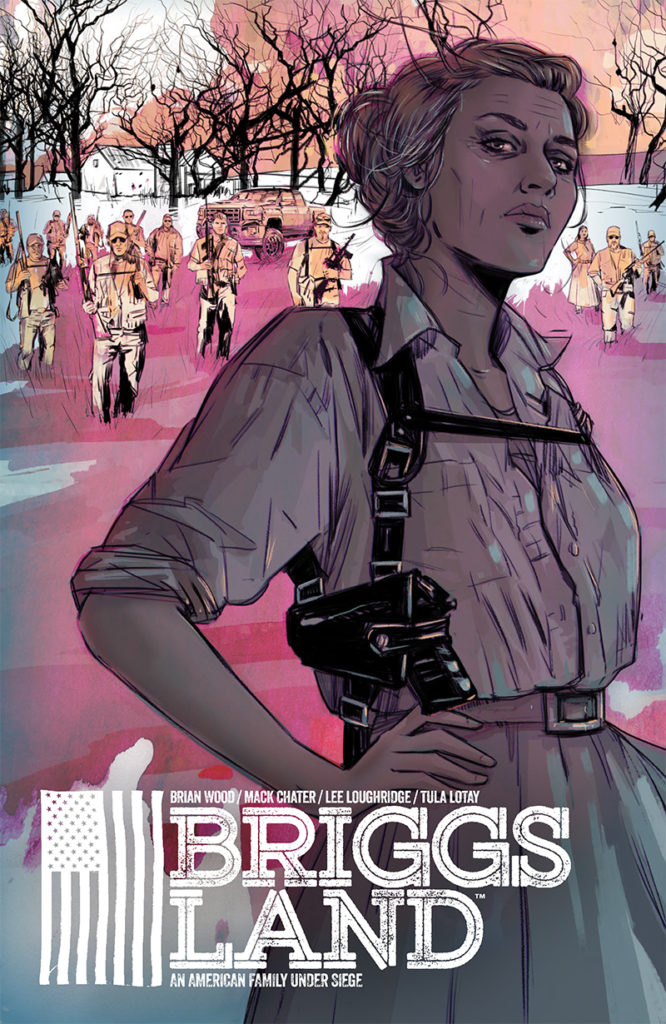
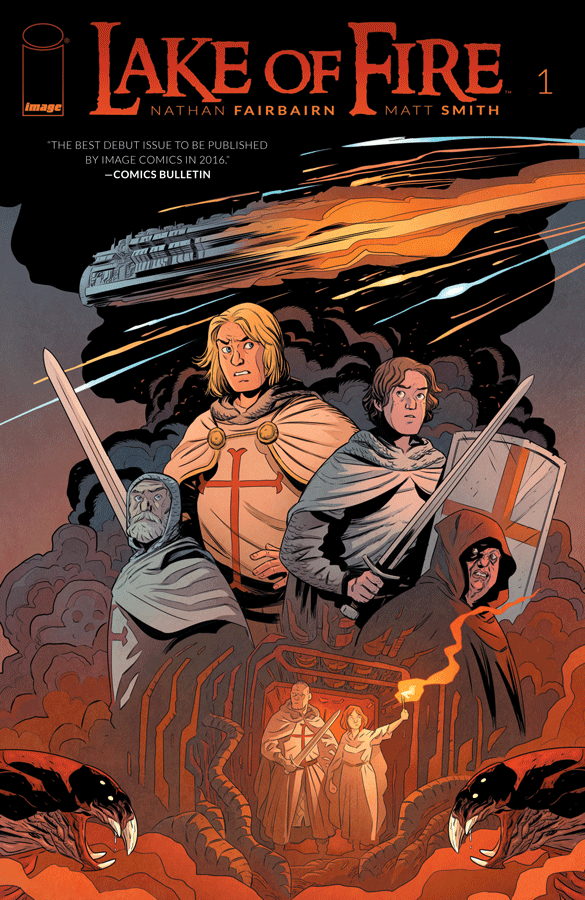
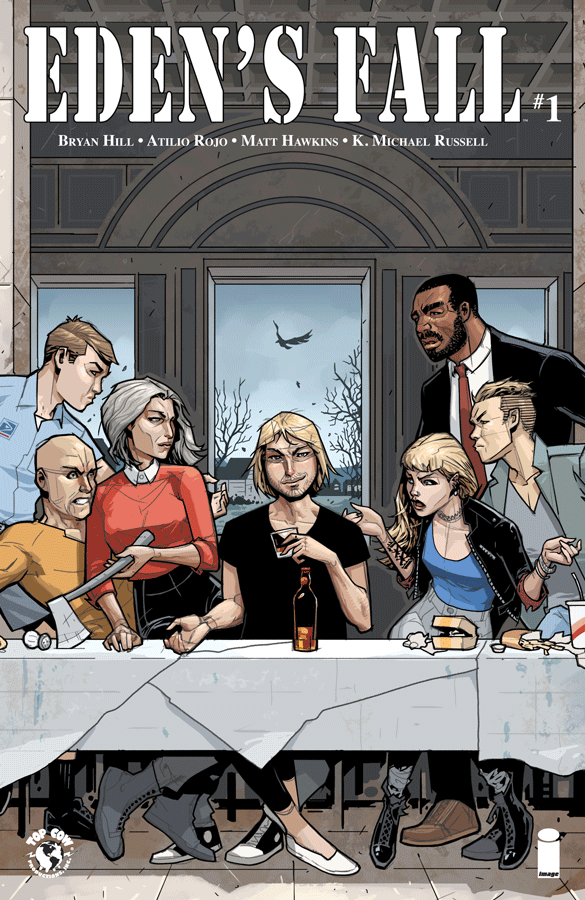
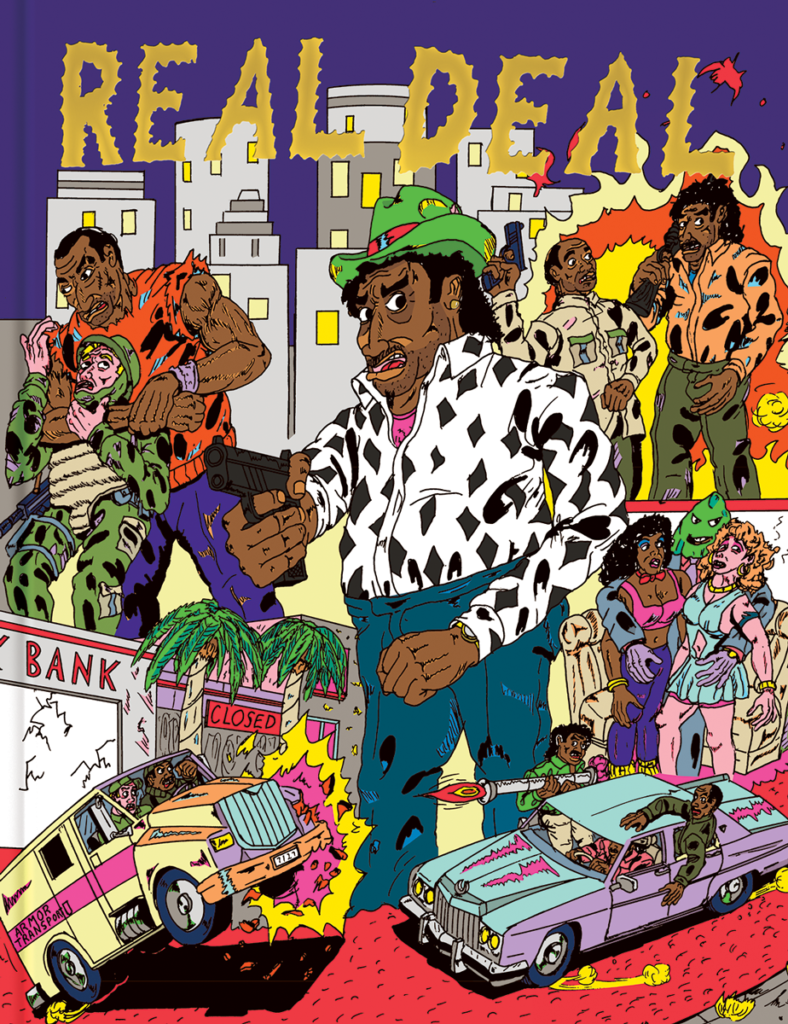
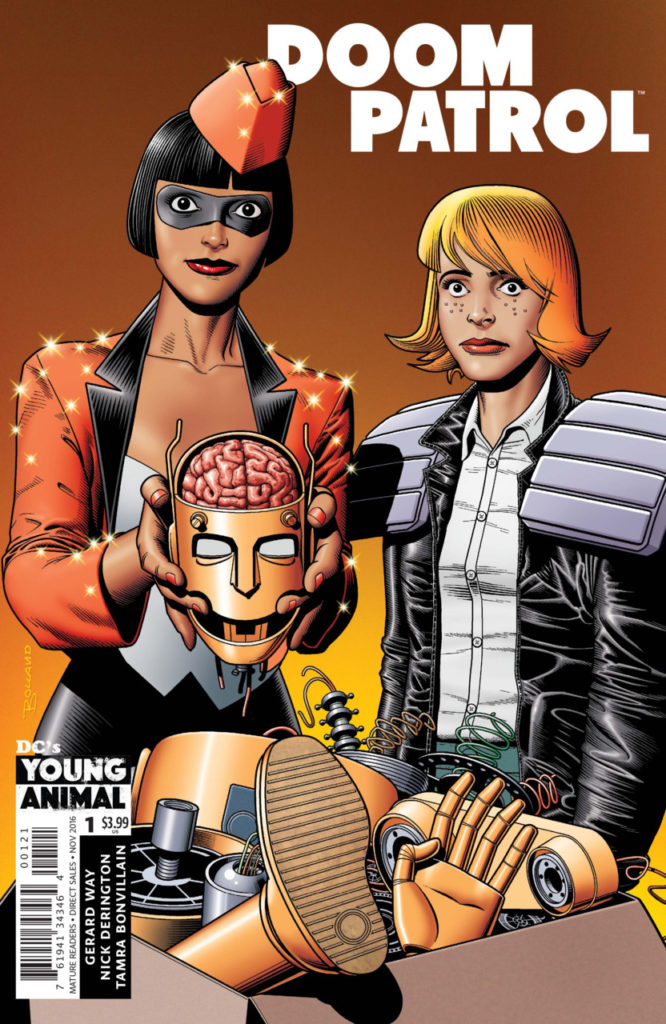
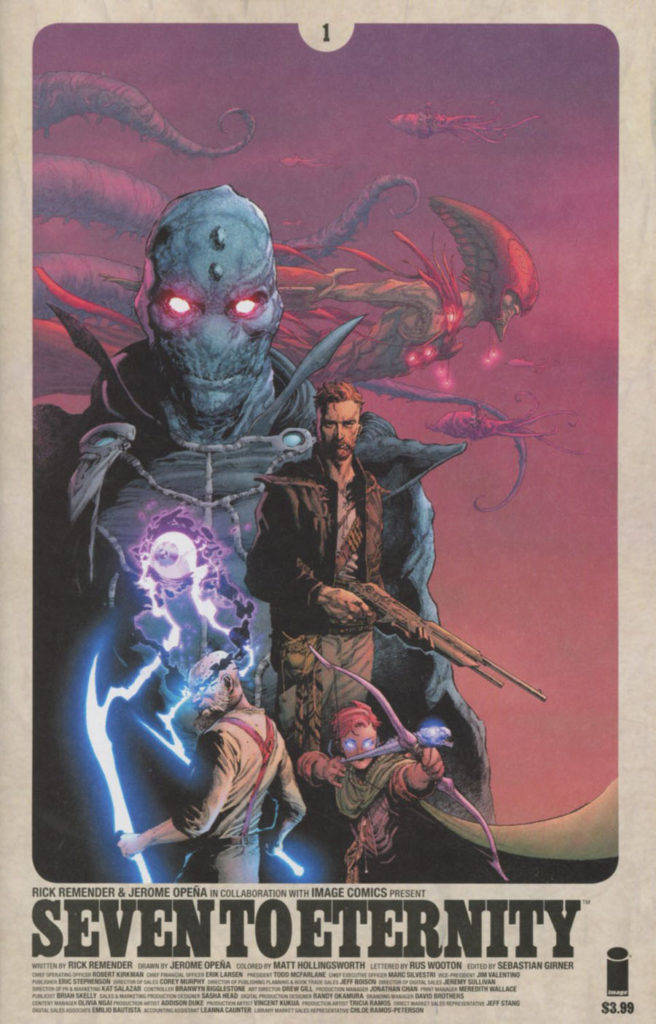
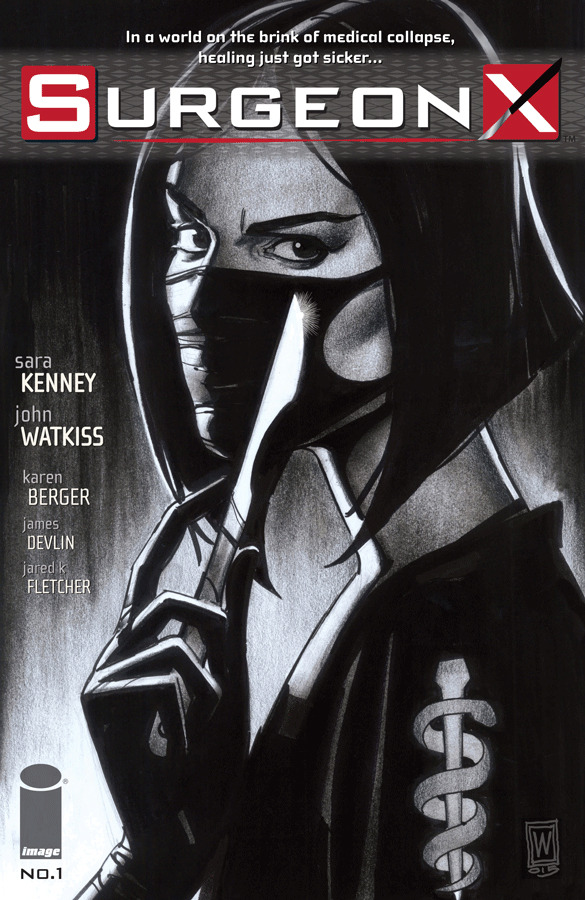
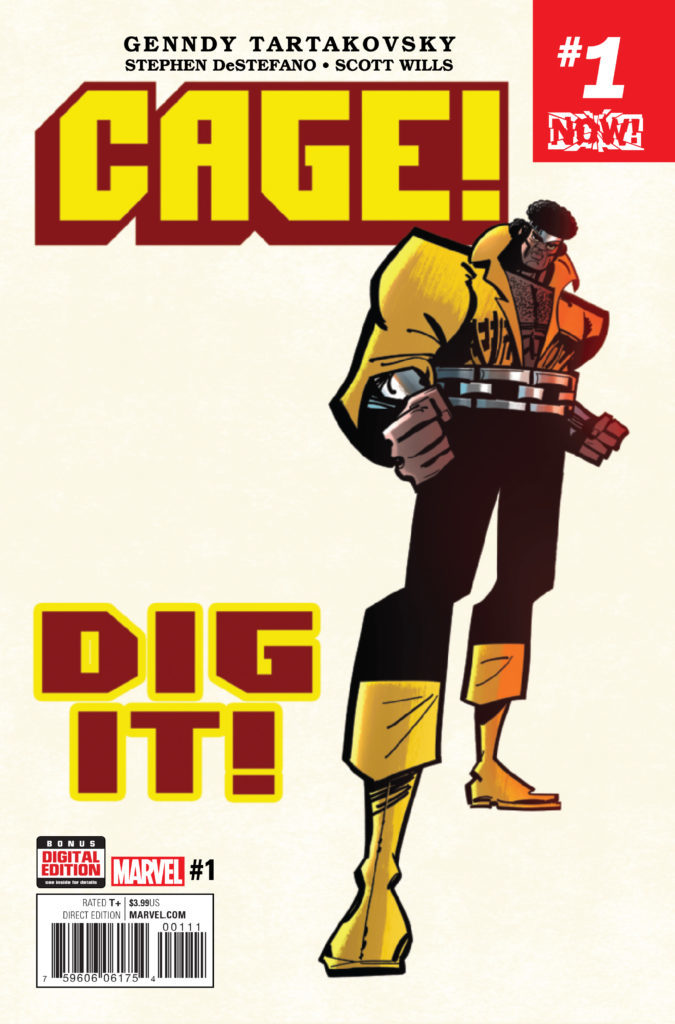
No Comments